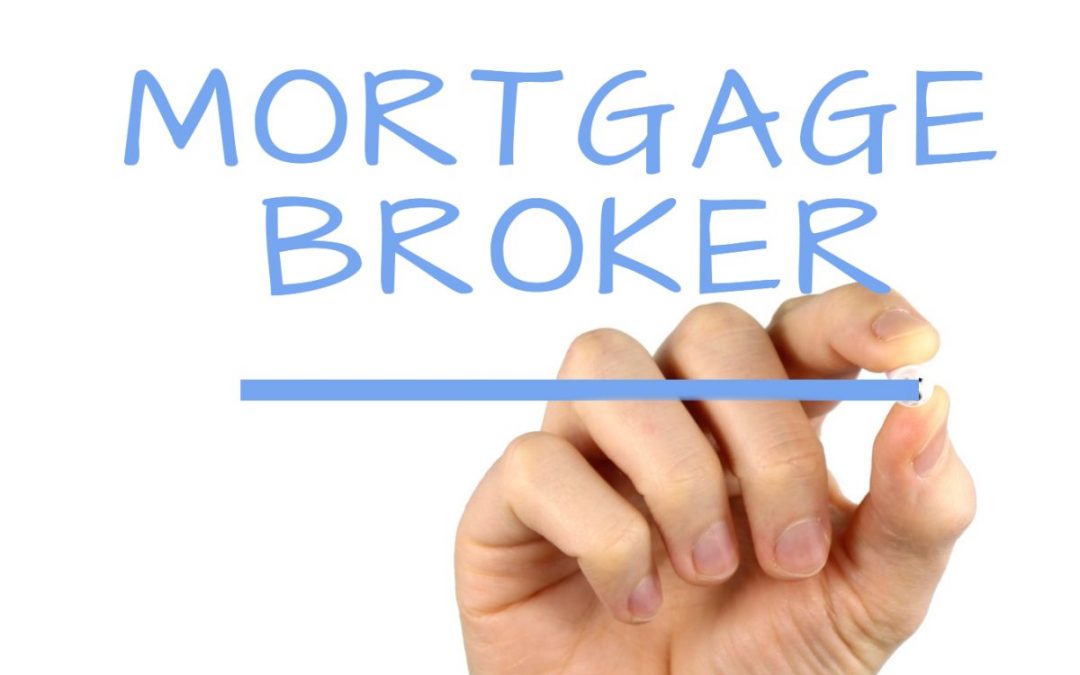
Aug 2, 2019
An increasing number of homebuyers are flocking to mortgage brokers instead of banks to secure themselves the best mortgage. Brokers, also called mortgage advisers, act as the mediator between homebuyers and lenders. They have insider knowledge of the industry, and access to a large number of lenders to secure you the best possible rate.
Mortgage brokers can shop around for you, streamlining the process of obtaining a mortgage. On the other hand, a bank can only offer their own products. A mortgage broker can help those with particular circumstances, like bad credit, due to their many connections in the industry.
Purchasing a house is one of the most significant investments and commitments you will make in your lifetime. It is essential to find the best mortgage broker for you—the wrong one could cost you thousands. Here are some tips to help you find the best mortgage, broker.
Do Your Research First
Inquire about your potential broker’s experience and credentials. Ask whether they have taken any additional licensing courses to enhance their knowledge. Determine whether they have been able to move up in their industry.
It also helps to read reviews by people who have worked with them in the past. Ideally, the broker should have many positive reviews. This information is easy to find online, so use that to your advantage. Spend time researching what rates are available to you. Looking at a comparison website will give you an idea of how good of a deal the mortgage broker is offering you. Never enter into any financial situation blindly.
Meet in Person
If you have a few brokers in mind, meet each of them in person. Doing so will give you an idea of what their future service will be like, as well as provide you with the opportunity to ask more questions. Ask if they are up to date with the mortgage industry. A reputable broker will be informative, providing you with in-depth knowledge. Look to see if they can answer questions confidently.
As far as their services go, pay attention to whether they are helpful and able to respond to you quickly. They should be able to communicate things clearly. Securing a mortgage can be complicated, so you will want someone who can explain complex terms and ideas to you simply—especially for first-time homebuyers. The ideal mortgage broker will be professional and organized.
Lender Selection
Ensure that their lenders are accredited and reputable. Do your own research to figure out who these institutions are. Find out whether the broker works with a broad range of lenders. If they work with a smaller number of lenders, ask why they work with those particular people.
Focus on Your Needs
It is essential to take the time to communicate your financial situation and needs clearly. When meeting your broker, provide them with your salary and what you are looking for in a mortgage. This will ensure that you are getting precisely what you want.
When your broker recommends products, they should be explaining why it is suitable for you. A great broker is customer-oriented. They take the time to ensure that they not only accommodate your personal needs but also know what is best given your unique circumstances.
They Should Sell Themselves
One of the easiest ways to judge brokers is to get them to sell themselves—after all; you are the one shopping for a mortgage broker. They should clearly explain and prove what they offer you as a mortgage broker that others cannot. And, their sales pitch should be convincing.
If you are looking to buy a home, SAN Mortgages has a wide range of mortgage options. Contact us today for more information.

Aug 2, 2019
A Mortgage Broker is an independent, trained professionals licensed to represent and provide you with the best advice for your mortgage needs.
The primary expertise of a Mortgage Broker is locating funding for mortgage financing. Brokers have the knowledge required to present a proposal for financing to lenders in the best way possible to successfully obtain mortgage financing. They know where the best lender package suitable to your specific situation can be found and they can help you save on your mortgage dollar.
Working with an experienced, competent mortgage broker can help you find the right mortgage. There is a wide assortment of options and features available to real estate buyers today. Shopping around takes a lot of time and effort. It pays to work with a mortgage professional who will represent you and ensure the mortgage you get is the one best suited to your needs. Choosing the wrong mortgage can cost you thousands of extra dollars.
These are some of the advantages of working with a mortgage broker:
A Broker saves you time and money – he or she may have access to different lenders, banks, trust companies, investors and financial institutions. Some lenders work exclusively with mortgage brokers and rely on them to bring them suitable clients and you may not be able to work directly with those lenders.
A Broker has access to a variety of private sources of funds or private/alternative lenders. These lenders can provide many various mortgage products not available at conventional sources.
Because mortgage-based financing is the broker’s primary business, he or she has developed expertise in what type of mortgage financing each lender prefers to pursue. This kind of knowledge not only results in the most favorable rates for each project but often whether a project is funded at all.
A Broker may also be able to get special rates from lenders due to the volume of business generated that might be lower than you can get on your own.
As a Broker specializes in mortgages and is knowledgeable on current trends and up-to-date on all the mortgage rates, most likely he or she will find you the best-suited mortgage to your financing needs.
A Broker works for you, not the bank.
A Broker has a vested interest in satisfying your needs since they rely on referrals and repeat business.
Often the success of obtaining mortgage approval depends on the way a proposal is presented and to whom it is sent. A professional presentation to a lender on the first application will get the best response and save you valuable time and money. A Mortgage Broker is trained to present your mortgage proposal where and how it will get the most immediate, positive result.

Jul 8, 2019
Alternative or Private mortgages come with fees and costs, like lender fees, mortgage administration fees, mortgage broker fees, appraisal, and legal costs.
Lender fees are variable from lender to lender as well depend on lending terms. Lender fees are usually in the range of 1% – 3 % on the mortgage amount.
Mortgage administration fee also can vary from 2- 5% of the mortgage amount, whether is 1st to 2nd or 3rd mortgage, new purchase or refinance.
Mortgage broker fees vary from broker to broker and can be expressed in the dollar amount or in percentage (usually in the range 1-2%).
Appraisal Cost – As private lending is equity-based, the lender needs assurance that they are lending against a property that is worth enough to ensure they are financially protected. You’ll be required to pay for a property appraisal through an appraiser that is approved by the lender. You are responsible to cover the cost at the time the appraisal is done but don’t pay for an appraisal until you have a lender lined up, who’s agreed to finance you.
The legal cost associated with the mortgage transaction – You, the borrower, is responsible for paying the legal fees for both yourself and for the lender. Some lenders allow to use the same lawyer as the lender, so that reduces your legal fees somewhat, but you always have the option to use your own lawyer.
It is recommended to you to always ask for cost and fees when exploring private lending options, so you know your options upfront.

Jul 8, 2019
Private or alternative mortgage lenders base their rates on the area, location, type of property, degree of risk perceived and estimated costs of administration. Each private mortgage interest is quoted on individual circumstances. But one is certain, your mortgage will be approved at the best rate for the property you are buying or refinancing based on your borrower profile.
Interest rates for alternative or private mortgage loans are higher compared to traditional lending since your borrower profile is considered riskier than average. Each mortgage deal is unique and may have a specific interest rate, but in general interest rate can vary from 4.99% to up 20%.
Interest rates depend on LTV %, property type, and location, whether it is 1st or 2nd or even 3rd mortgage (position of the mortgage). The lower your LTV, the better the mortgage position (a first mortgage being better than a third mortgage), and the better your current credit situation, the better your rate is likely to be. If there are more risks for a lender, interest may be higher.
Most private lenders consider only fixed – interest rate while a small percentage of lenders offers variable interest rate. Most lenders provide fixed-rate interest-only mortgages while others provide both, interest – rate and amortized mortgages. Mortgages can be fully open without the penalty to break the mortgage or can be with up to a 3-month penalty for prepayment.
Payments on a private mortgage are usually “interest-only” payments, which is one of the reasons this may be a good option for someone with temporary cash flow issues, or an investor.
Due to the higher interest rate and riskier borrower profile, most alternative and private lenders do not extend mortgage term beyond 3 years. That period allows you to build your credit quickly and eventually borrow at cheaper interest rates. Once you’ve paid off your private loan and gotten your financial situation into better condition, look for a refinance or second mortgage loan that can assist you with a more long-term solution.

Jul 8, 2019
Private or alternative mortgages are funds that originate from private individuals, mortgage investment companies (MICs) or mortgage finance companies (MFC) who lend out for investment purposes. Private or alternative mortgage providers are willing to lend money out to borrowers who have equity in their property, need financing for a short term (up to 3 years), and don’t qualify for a mortgage by other means.
The mortgage can be a first mortgage, or, it can be a mortgage in second or third position.
Alternative lending is aimed at borrowers who do not meet traditional lending criteria and when traditional loans cannot be approved. When a home buyer or real estate investor cannot qualify under a large number of requirements that the conventional lending sources need to be satisfied before they are able to lend, the viable options are private or alternative mortgages.

Jul 8, 2019
What are the reasons why your mortgage application might have been denied? Banks and other traditional lenders have strict regulations and criteria to follow when approving mortgages to the potential borrowers who apply with them.
When you apply, some of the major factors that prime lenders will examine are your credit (score, rating, report, history), your employment record and gross monthly income, your net worth, and your history of debt. If your creditworthiness comes up short, meaning you have poor finances or credit and/or a record of not paying back what you borrow, or no steady- income, chances are that your application may be denied. In other words, banks especially cannot be sympathetic to you just because you really want a mortgage.
In some cases, a reason that your application may be denied is the property by itself. Not all properties are financed by traditional lenders. Among them: rural properties, vacant land, leaseholds, hotel/motels, gas stations, and churches.
If you do not qualify under a large number of requirements that the conventional lending sources need to be satisfied before they are able to lend, the viable options are private or alternative mortgages.






